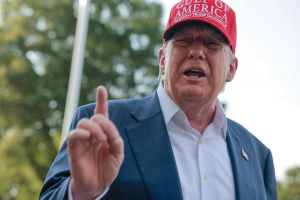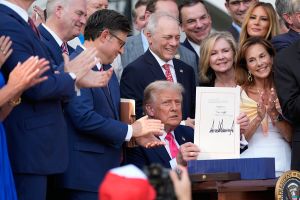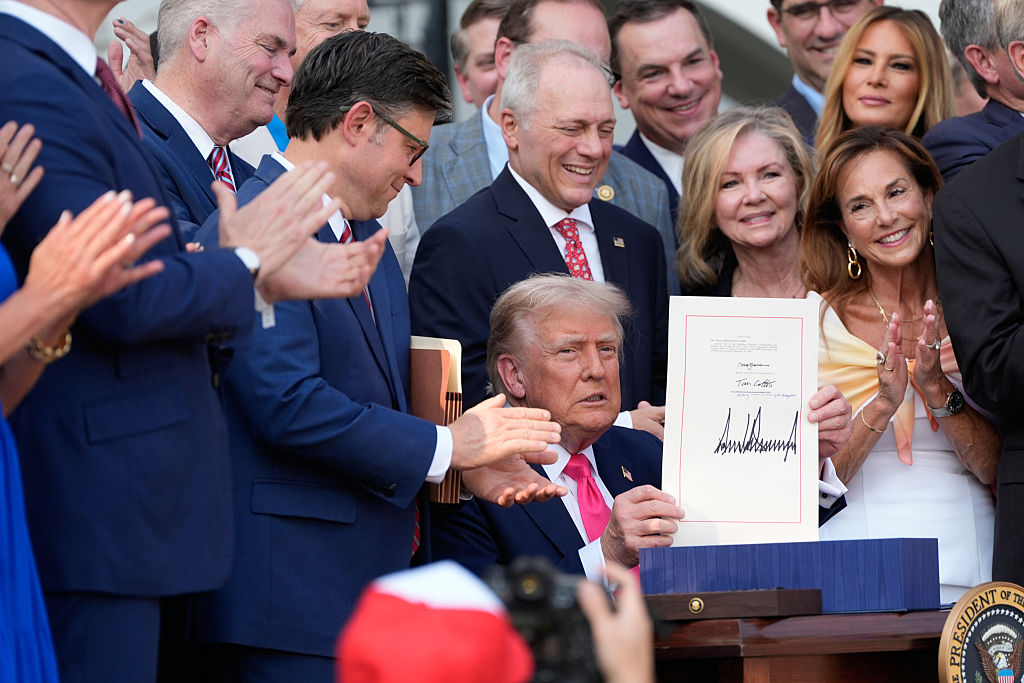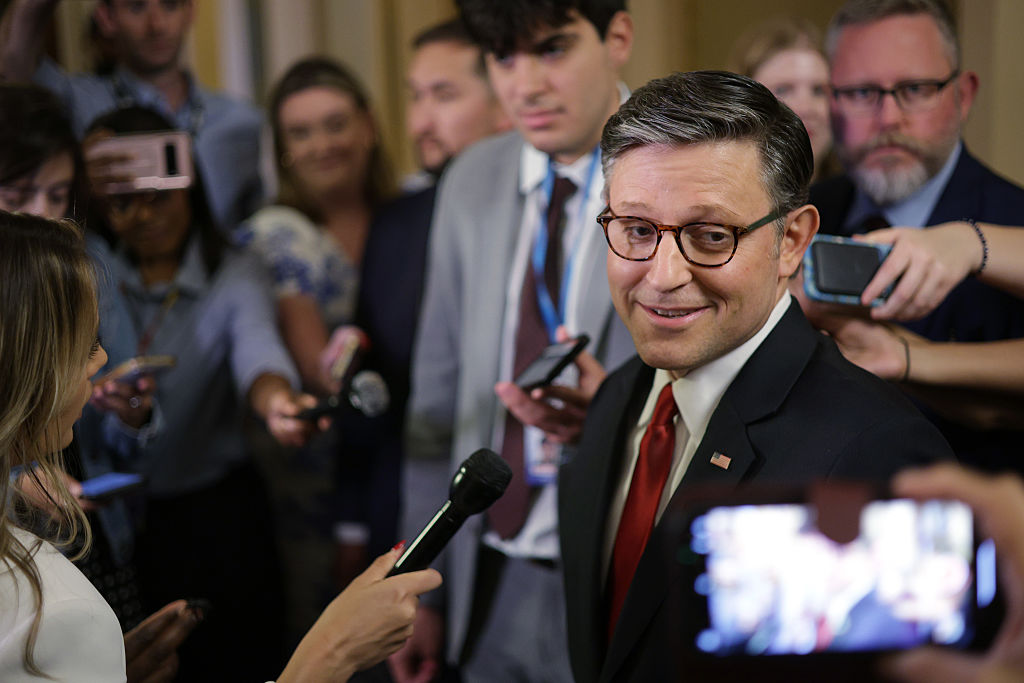The location was the same — the circumstances starkly different. Almost twelve months ago, hundreds of thousands of people gathered on Buenos Aires’ immense central avenue to celebrate their team’s win in the World Cup. A year on, and hundreds — honking car horns and waving the blue-and-white Argentine flag — were there to celebrate the electoral victory of Javier Milei.
The far-right libertarian, who describes himself as an anarcho-capitalist, began the race as a rank outsider, having only entered politics in 2020 and making his name as a bombastic television economist.
The far-right libertarian, who describes himself as an anarcho-capitalist, began the race as a rank outsider
In his victory speech after beating rival Sergio Massa with 56 percent of the vote, Milei told his jubilant supporters that the “reconstruction of Argentina” could now begin.
He intends to do this by smashing up years of economic orthodoxy — dollarizing the economy, which is currently based on the flailing peso, and shuttering the country’s central bank.
Milei came from nowhere to place first in the August primaries with a campaign raging against what he called the corrupt political “caste.” His political rallies were raucous affairs at which he would often wield a chainsaw above his head — a nod to his plans to cut the size of the state.
Despite this fervent support, his opponent Sergio Massa took a seven percentage point lead in October’s first poll. But Massa’s inability as finance minister for the past year to get a grip on the country’s struggling economy ultimately proved an electoral millstone he was unable to shrug off.
Inflation has soared to 143 percent — the fourth highest in the world — while the country’s reserves of foreign currency, vital to managing its huge debts to the International Monetary Fund, have fallen into the negative.
A majority of voters have now placed their trust in Milei, and his radical ideas, to halt the slide. He will now be able to put his flagship dollarization policy to the test, although economists point out that dollarizing without dollars in reserve will be an immense challenge.
He will also face fierce opposition from those fearful of his extreme social plans, which include holding a referendum on abortion rights and closing government departments dedicated to women and the environment. Milei, and his running mate Victoria Villarruel, also drew criticism during the campaign for questioning the number of victims “disappeared” by Argentina’s bloody dictatorship, which ruled from 1976 to 1983.
The maverick president-elect has also suggested liberalizing markets for guns and even human organs — although, perhaps in a bid to appeal to moderates, he had rowed back on his commitment to these ideas in recent weeks.
How far he will attempt to go, and how far he is able to with a fairly threadbare party machine in congress, will become clear throughout his term.
An open question is how Milei will approach the question of foreign diplomacy. His Brazilian counterpart Luiz Inacio Lula da Silva was among the first global leaders to congratulate him on his victory. Milei has previously dismissed him as a “communist” and said he will not meet him. This could affect Argentina’s bid to join the BRICS bloc of countries, of which Brazil is a leading member. Milei has also said he will freeze dealings with China. Argentina has increasingly turned to the Asian powerhouse for cash to keep its economy afloat and service its gargantuan debts to the IMF, most recently by borrowing $6.5 billion last month.
An unexpected outcome of Milei’s ascent to power could relate to the country’s dispute with Britain over the Falkland Islands. Milei has caused controversy in the past by calling Margaret Thatcher, prime minister during the Falklands War, a “great leader.” His likely foreign minister has also suggested that the rights of the Falkland islanders should be respected. Argentina maintains that the islands — called the Malvinas by Argentines — are part of the country. A referendum held in 2013 saw 99.8 percent of islanders vote to remain a British territory.
Amid all these uncertainties, for many Argentines the overwhelming reaction was fear at what their country could now become.
In the hours after the result was announced on Sunday evening a meme circulated in WhatsApp groups summing up this feeling. It featured one of Milei’s chainsaws. “The problem,” it said, above the machine’s handle, “is that you think you will be on this side.” Below the saw’s teeth it read: “And you’re going to be on this side.”
This article was originally published on The Spectator’s UK website.


























Leave a Reply